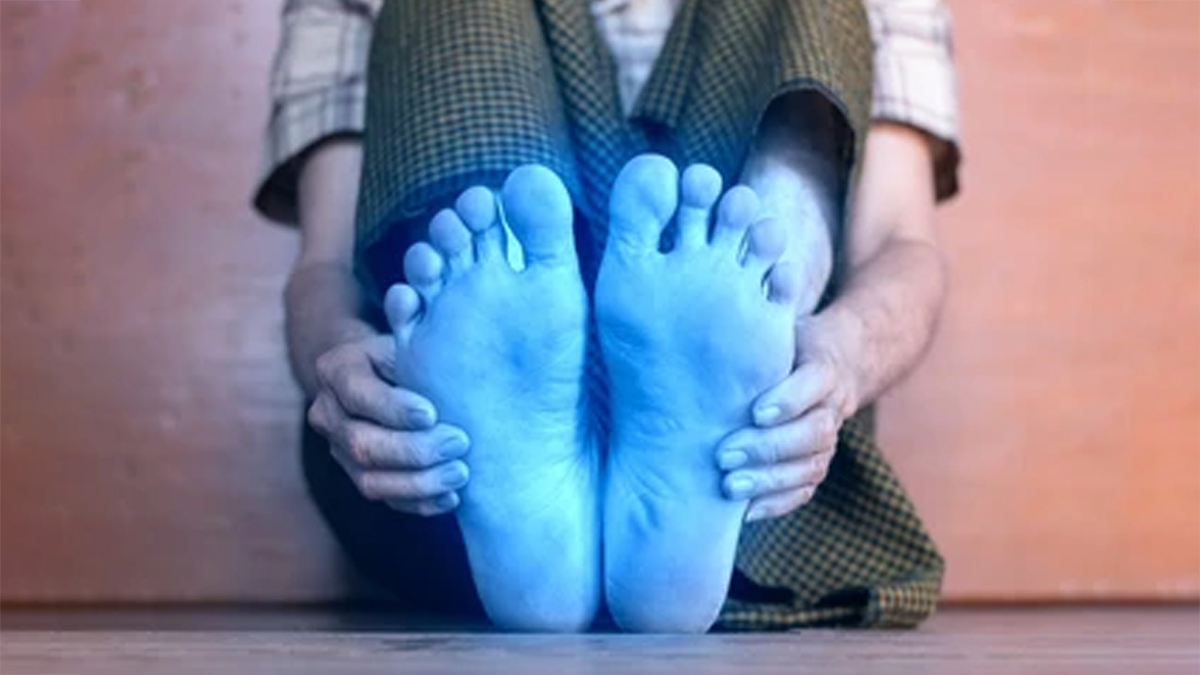Cold Hands, Hot Feet? What Temperature Imbalance Might Signal
Cold hands and hot feet might seem like small annoyances, but they can offer early clues to what’s going on under the surface.

Cold hands usually indicate poor circulation of blood. If your body fails to circulate the blood properly, particularly to the hands, they remain cold. Raynaud's disease is one condition that can constrict your blood vessels due to cold or stress, causing the hands to become white, blue, or red, and develop coldness or numbness.
Meanwhile, if your feet are hot, it might be a sign that your circulation is overcompensating in other areas or that there is inflammation or nerve irritation going on down south.
Top Stories
Hot feet may also be your nerves sending out an SOS. Peripheral neuropathy, which results from damaged nerves outside the brain and spinal cord, causes burning, tingling, or hot sensations, particularly in the feet. It is prevalent among individuals with diabetes, alcoholism, or vitamin B12 deficiency.
So if your feet are hot, even when they're not in warm environments, and your hands are cold, it may signal an imbalanced nerve response, where your body is firing temperature signals off wrong.
Hormones are the internal thermostat controllers of your body. When they are out of balance, your temperature can go for a toss.
Thyroid diseases are a frequent culprit here. An underactive thyroid or hypothyroidism can result in cold hands and intolerance to cold in general, as the body's metabolism slows down. On the other hand, menopause or perimenopause can result in hot flashes or burning feet caused by fluctuating oestrogen levels.
Have you ever noticed how your palms sweat or your feet feel restless during moments of intense stress? The body responds to anxiety in unexpected ways, including temperature changes. Cold hands can happen due to blood vessels constricting during fight-or-flight mode. At the same time, nerve stimulation may cause your feet to feel warm or even burn.
Temperature imbalance brought on by stress doesn't necessarily mean something's wrong medically, but long-term stress can impact circulation, hormones, and nerve impulses over time.
Low levels of nutrients, especially vitamin B12, iron, and magnesium, can impact your nerves and blood vessels. These deficiencies may appear as cold hands and feet, tingling in fingers, or burning feet.
If you’ve been skipping meals, following restrictive diets, or haven’t checked your blood levels in a while, this might be worth investigating.
The occasional cold hands or hot feet following a long day or a cold night is not uncommon. However, if it's frequent, ongoing, or there are other symptoms, such as numbness, fatigue, weight changes, or tingling, it's worth seeking the doctor's advice. It may be indicative of conditions like diabetes, vascular disease, thyroid problems, or nutritional deficiencies.
- Deep breathing, yoga, or short walks can suppress anxiety and strange feelings in your body.
- Keep a diary if this occurs frequently, and identify patterns, such as time of day, eating, or emotional cause.
[ This article contains information for informational purposes only. Hence, we advise you to consult your professional if you are dealing with any health issue to avoid complications.]











